What are Even Numbers?
Even numbers can be divided into two equal groups like 2, 4, 6, 8, and 10.
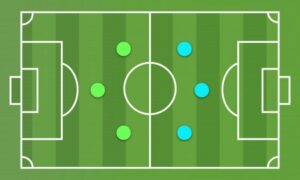
6 players can split into two equal groups. That’s why 6 is an even number!
What are Odd Numbers?
Every number that isn’t even is called odd.
Odd numbers can’t be divided into two equal groups. 1, 3, 5 are all odd.
Is it Even or Odd?
🤔 How can you tell if a number over 10 is even or odd?
👉 Look at the Ones place.
Numbers that end in 0, 2, 4, 6, and 8 are always even.
Numbers that end in 1, 3, 5, 7, and 9 are always odd.
Think about the number 13. Is it even or odd?
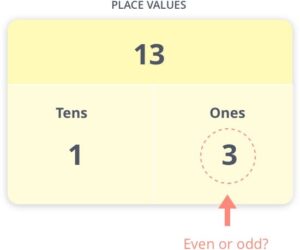
Since 3 is an odd number, the number 13 is odd, too.
Rules for Adding Even and Odd Numbers
All numbers follow these 4 patterns.
Even + Even = Even
Example: 2 + 2 = 4
Odd + Odd = Even
1 + 3 = 4
Even + Odd = Odd
2 + 3 = 5
Odd + Even = Odd
1 + 2 = 3
Are these rules really true for all numbers? 🤔
Let’s try an example to see.
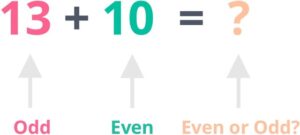
The rules say that adding an odd and an even number should give us an odd sum.
Let’s check:
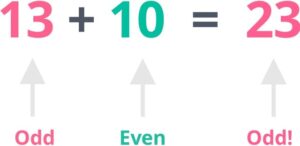
Yes, the sum is odd!
Rules for Subtraction
Just like with addition, there are 4 rules for subtraction. Take a look.
Even – Even = Even
4 – 2 = 2
Odd – Odd = Even
3 – 1 = 2
Even – Odd = Odd
2 – 1 = 1
Odd – Even = Odd
3 – 2 = 1
Let’s look at an example to see if these rules are true.
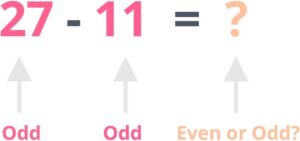
Based on the rules, subtracting two odd numbers should give us an even difference.
Let’s check:
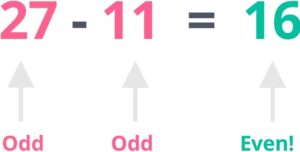
Yes, we do have an even difference!
